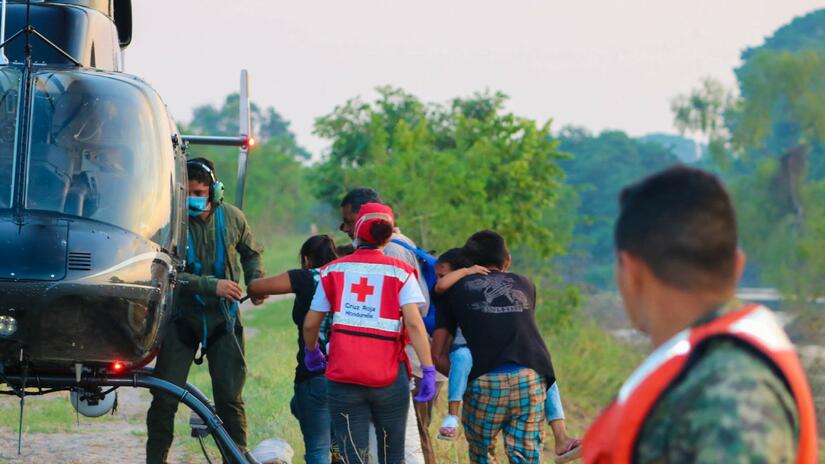The past hurricane season in the Atlantic has been one of the worst for Honduras since Hurricane Mitch, which caused more than 5,000 deaths in 1998.
Hurricanes Eta and Iota, category 4 and 5 respectively, made landfall last November and entered through the Department of Paraíso, the area where Carlos Colindres, National Risk Manager of the Honduran Red Cross, usually lives. "When I confirmed that the situation could become very serious, I began to worry about my family. We were already designing contingency plans for the population, when I remembered that I had to talk to my father to warn him. I explained to him there were going to be days of heavy rain and strong winds and it was necessary to be prepared, to have provisions and to keep warm... he answered me that he had already lived similar situations throughout his life, but now he felt calmer because according to him, they were handled in a more efficient way. That's what it's all about, I told him, be prepared for giving the best response, and try to minimize the impact and save lives”.
Responding during a pandemic
Colindres, manager since 2014, says the COVID-19 pandemic has hindered the response of the institutions to the disaster caused by the two hurricanes, due to mobility problems and limited product procurement, among others.
"The Honduran Red Cross has a lot of experience in facing endemic epidemiological situations in the area, such as dengue or zika, and we are prepared to act in adverse meteorological situations such as hurricanes or floods, but not with a pandemic of such magnitude at the same time... a country is never prepared for a situation like this."
There were challenges to being able to provide quality care in a timely manner, according to Colindres. Many things failed, such as early warning systems, because there is no adequate technology available in the country to make an accurate projection and forecast. "Despite everything, our response was adequate, we arrived at the right time. The volunteers of the Honduran Red Cross, together with the national security forces under the Humanitarian Response Units UHR, were evacuating people and transferring the population to shelters and other safe places from the beginning. The Red Cross saved the lives of more than 4,900 people through water and air rescues. They also provided psychosocial support, first aid, and house cleaning... but the second hurricane, Iota, made everything worse, leaving 1.2 million people exposed to the disaster," he recalls.
Being prepared
Being able to respond in the most effective way to a catastrophe like this it takes many years of hard work and training beforehand. It is essential to be prepared at all levels, from institutional to local level. The key is to have adequate training and resources, as well as ongoing volunteer training.
"Having a clear national response plan, which is part of strengthening our operational capacity, has helped us to plan our response. In addition, volunteers have been trained to deal with emergencies, including epidemics. Many National Societies, with the support of the IFRC, are implementing an approach we call PER (Preparedness for Effective Response) that allows us to improve our disaster response mechanism. This approach is the result of experience and best practices learned from many years responding to emergencies around the world".
The passage of hurricanes Eta and Iota triggered a humanitarian crisis aggravated by the COVID-19 pandemic, which has left more than 100 dead in Honduras, millions displaced, as well as the destruction of homes, bridges, roads, crops and economic losses in the millions, which will take years to recover.

